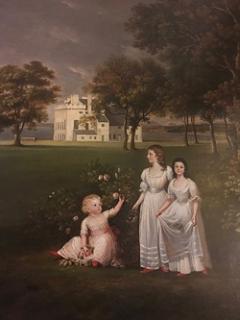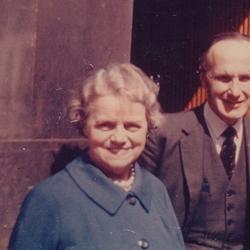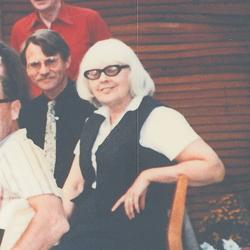Unsung women of Philosophy, Psychology, and Language Sciences
The School of Philosophy, Psychology, and Language Sciences celebrates International Women’s Day on 8 March 2019
We are celebrating International Women’s Day by highlighting the achievements of three Scottish women who deserve recognition for their contribution to philosophy, psychology and language sciences.

Unsung philosopher Lady Mary Shepherd
1777 – 1847
Born on the family estate in Dalmeny, Midlothian, Mary Shepherd was the author of several revered works in metaphysics and theory of knowledge and an active critic of the Scottish School, especially Hume. Widely read at her time, her monograph was used as a textbook at Cambridge and disputes published in a monthly magazine.
Every step gained in the knowledge of causes (i.e. of what objects are necessary in order to the production of another) is of exquisite value, and it is pity if a false philosophy should succeed in slackening the emulation of inquiring minds upon this subject, which is one of the highest moment to human health and happiness

Unsung psychologist Mary Collins
1895 – 1989
Graduating from Edinburgh in 1917, Mary Collins became a prominent lecturer at the University, specialising in colour vision. Besides publishing a monograph: Colour-blindness: With a Comparison of Different Methods of Testing Colour-Blindness, she collaborated on a number of publications with Sir James Drever. Collins was promoted to Senior Lecturer by 1950 and Reader in Psychology by 1956.
The value of the work done by Dr Collins consists in the fact that she has shown with great clearness by her investigations the real nature of the psychological phenomena. No other investigator has been so entirely free from prejudice in seeking to get at the facts

Unsung linguist Vivian Salmon
1921 – 2010
An important figure in British linguistics and prime mover in founding the Henry Sweet Society for the History of Linguistic Ideas, Vivian was a major contributor to the department in Edinburgh after moving here in 1969.
The subject is of prime importance to linguists (as well as many others); only fragmentary, and often controversial, treatments are available; Mrs Salmon's knowledge of the material, in manuscript and print, is unique, and not likely to be matched in future

